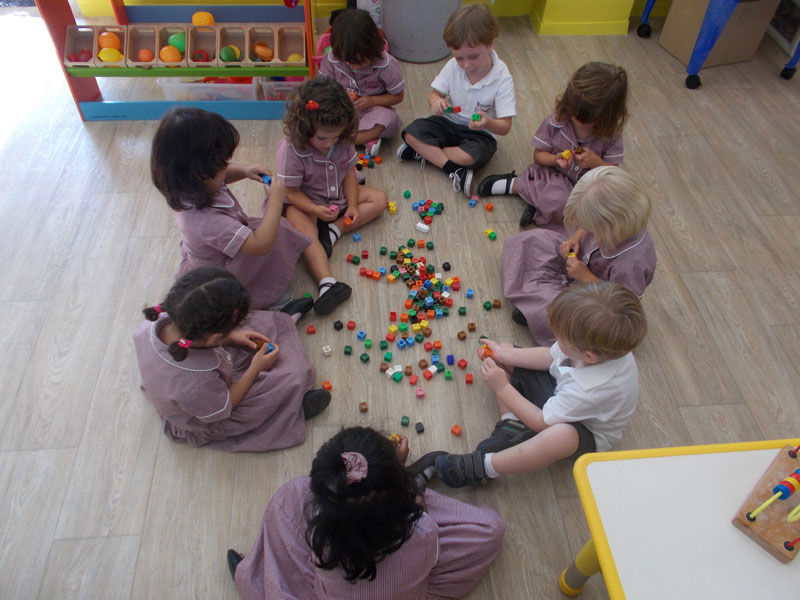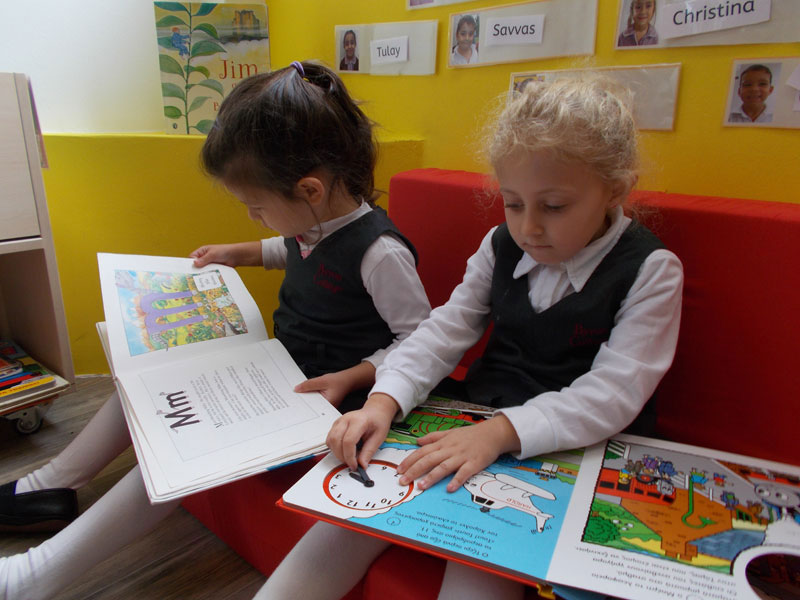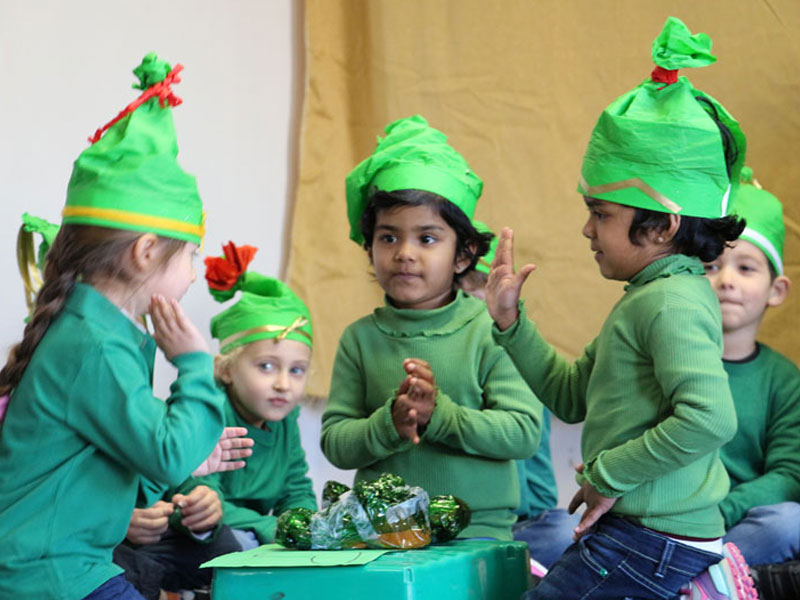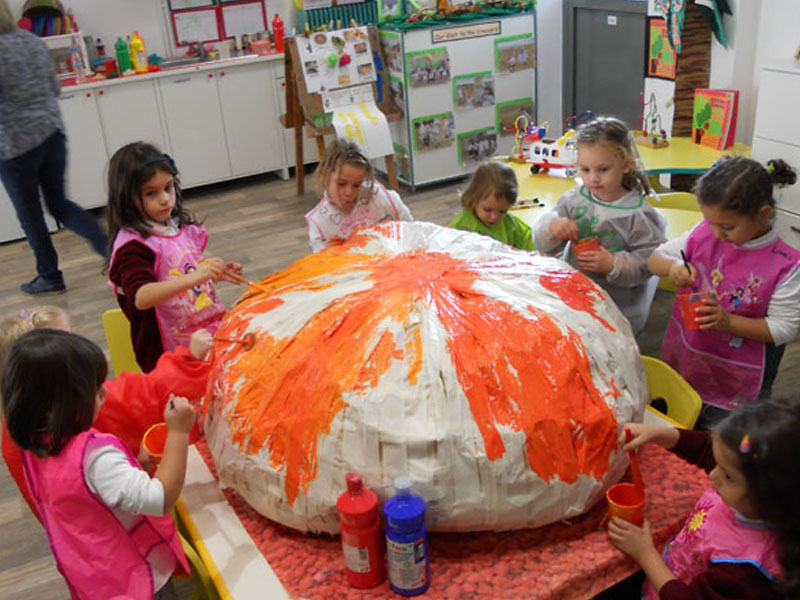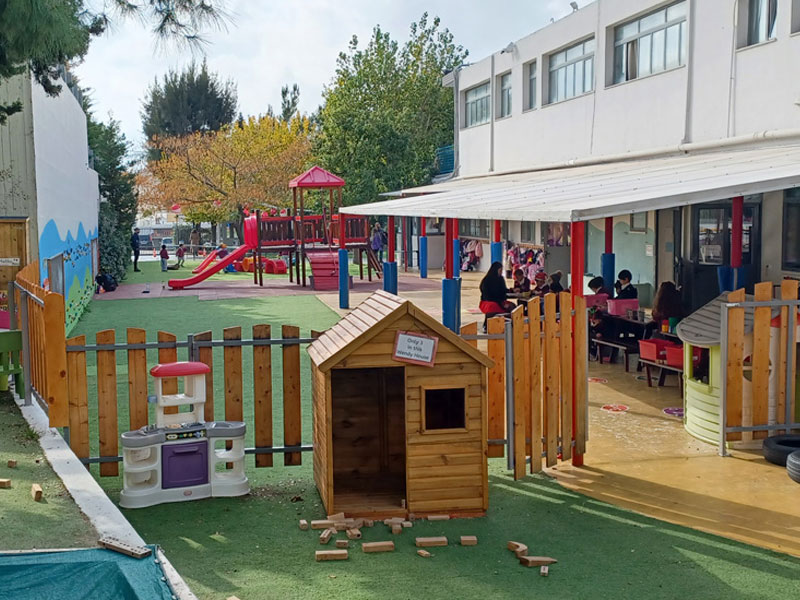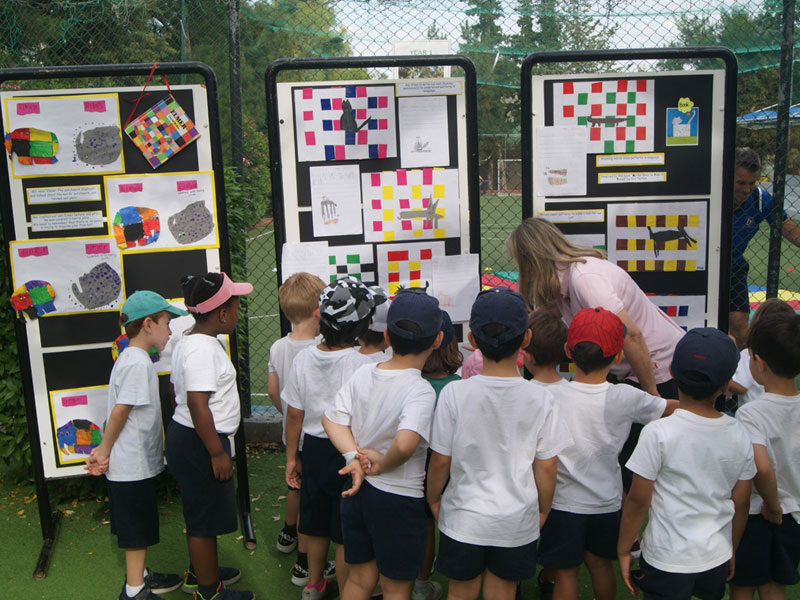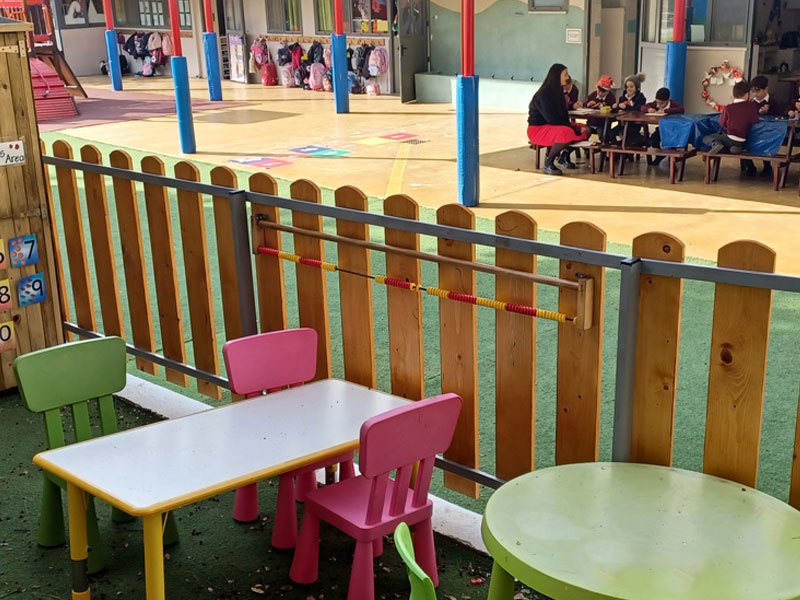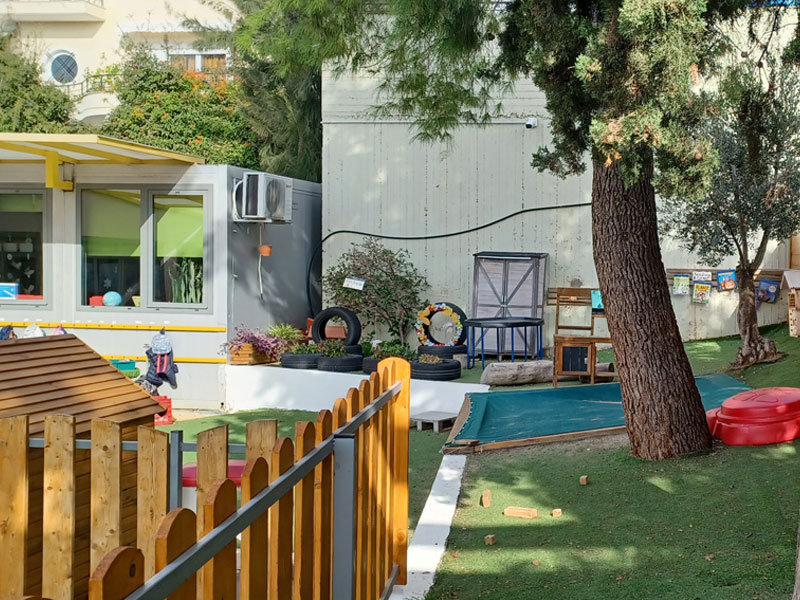Early Years Foundation Stage
As part of the English National Curriculum (ENC), the Early Years Foundation Stage (EYFS) curriculum sets standards for your child’s learning, development, and care from birth to 5 years old. Children develop quickly in the early years and a child’s experiences between birth and age five have a major impact on their future life chances.
At Byron College, this balanced and varied programme prepares our youngest learners aged 4-5 for their future education by developing skills, interests, self-esteem and confidence. A secure, safe and happy childhood is important in its own right. Good parenting and high-quality early learning together provide the foundation children need to make the most of their abilities and talents as they grow up.
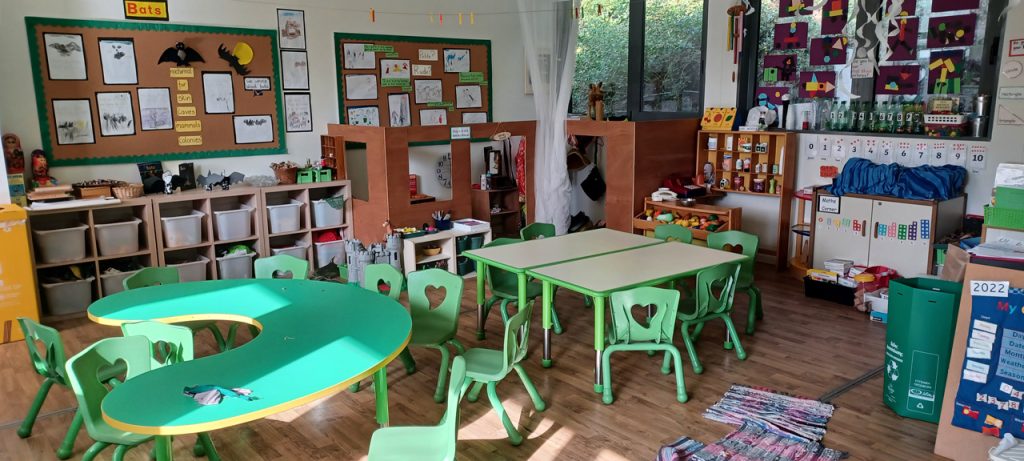
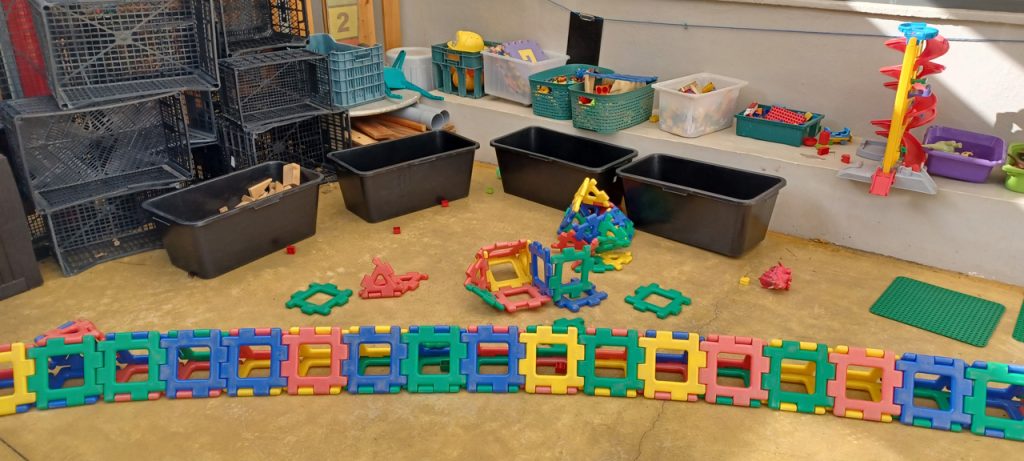
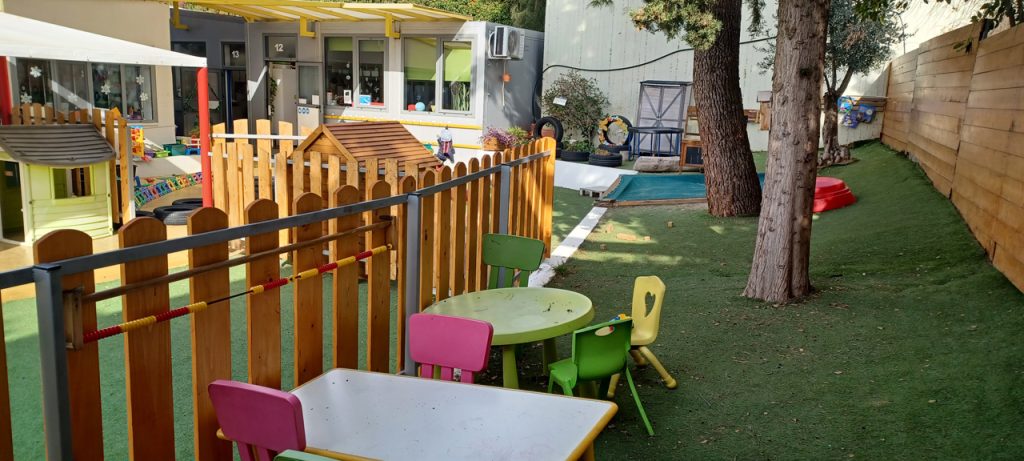
Our Early Years Foundation Stage (EYFS) Department provides a happy, safe and nurturing environment where the children feel confident to express themselves, explore the world around them and develop their social skills. We focus on how a student learns as well as on what they learn. We consider each student as a whole, and understand that social, emotional, and physical well-being are all factors which impact on their current and future involvement and motivation to learn.
We follow the Statutory EYFS Framework (September 2023). These standards ensure that children learn, develop well and are kept healthy and safe. It promotes teaching and learning to ensure children’s ‘school readiness’ and gives children the broad range of knowledge and skills that provide the right foundation for good future progress through school and life.
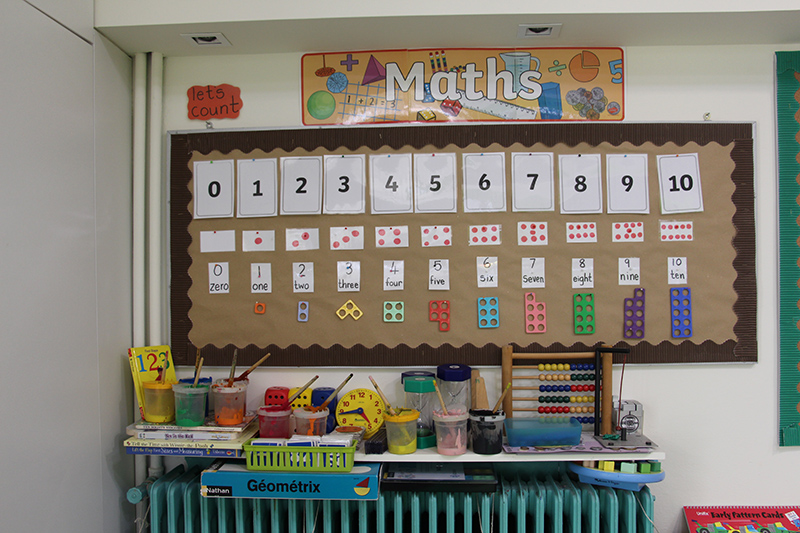
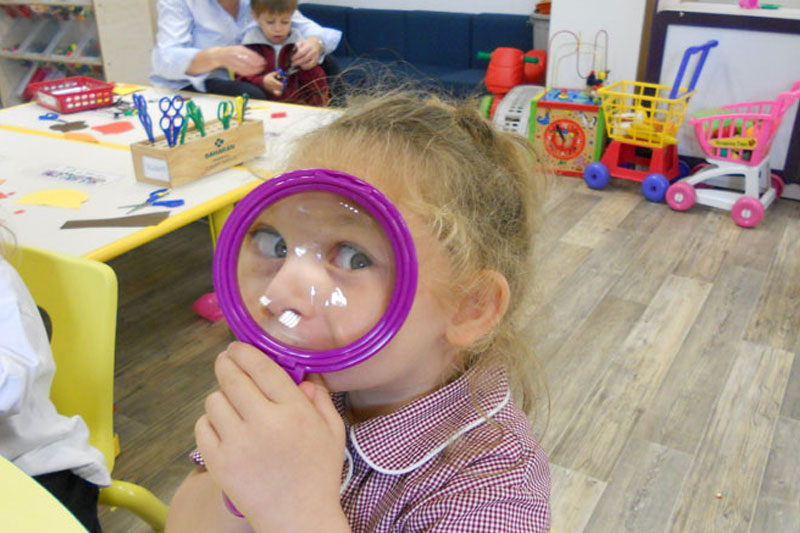
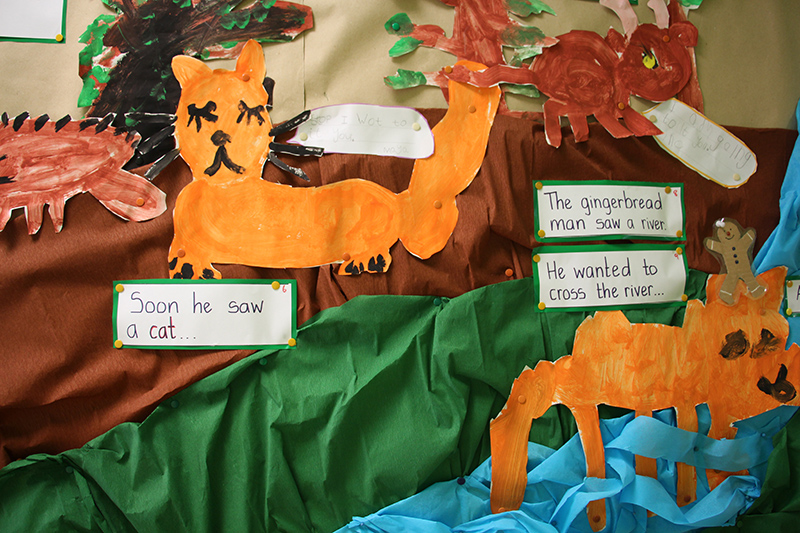
Parental Overviews
EYFS
EYFS: September – October
EYFS: November – December
EYFS: January – February
EYFS: March – April
EYFS: May – June
.
Guiding Principles
The EYFS is based on four essential principles that shape our practice at Byron College:
- A unique child: Every child is a unique child who is constantly learning and can be resilient, capable, confident, and self-assured.
- Positive relationships: Children learn to be strong and independent through positive relationships.
- Enabling environments: Children learn well in enabling environments in which their experiences respond to their individual needs, and there is a strong partnership between practitioners and parents/carers.
- Learning and development: Children learn and develop in different ways and at different rates. The framework covers the education and care of all children in Early Years settings, including children with special educational needs and disabilities.
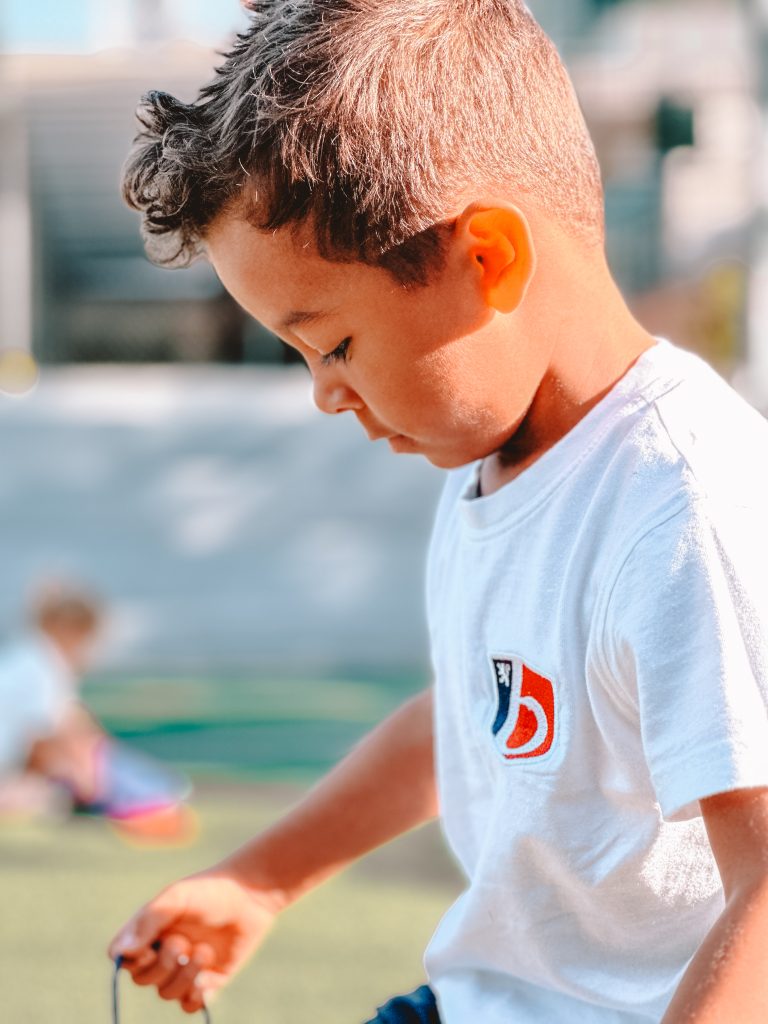
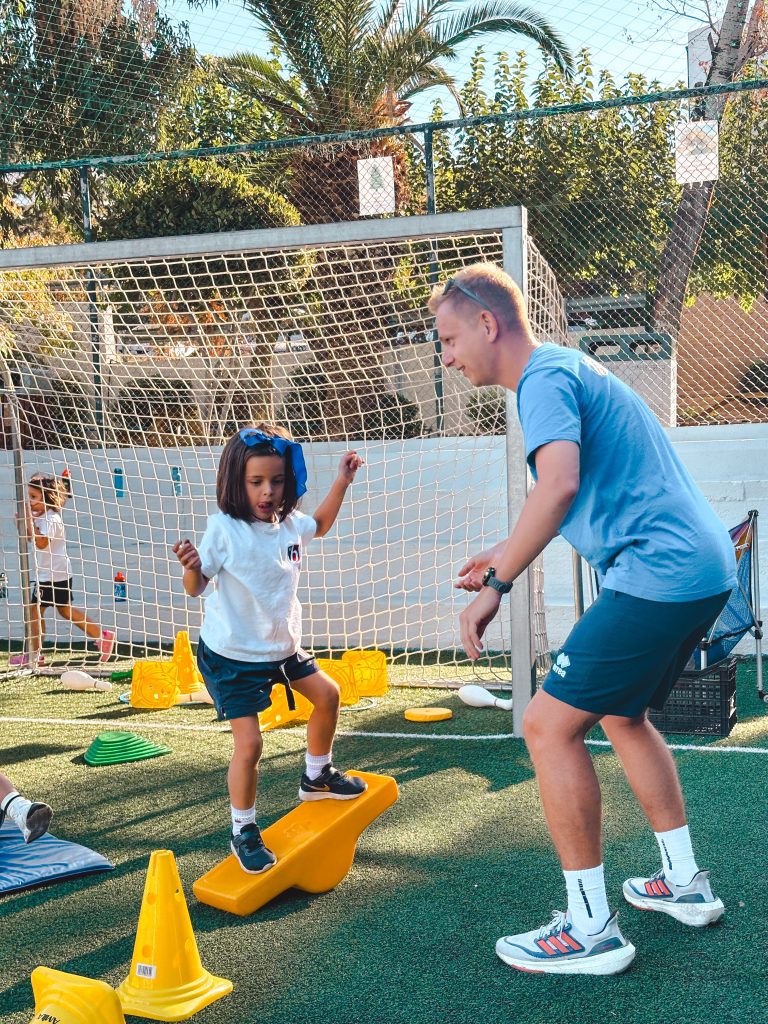
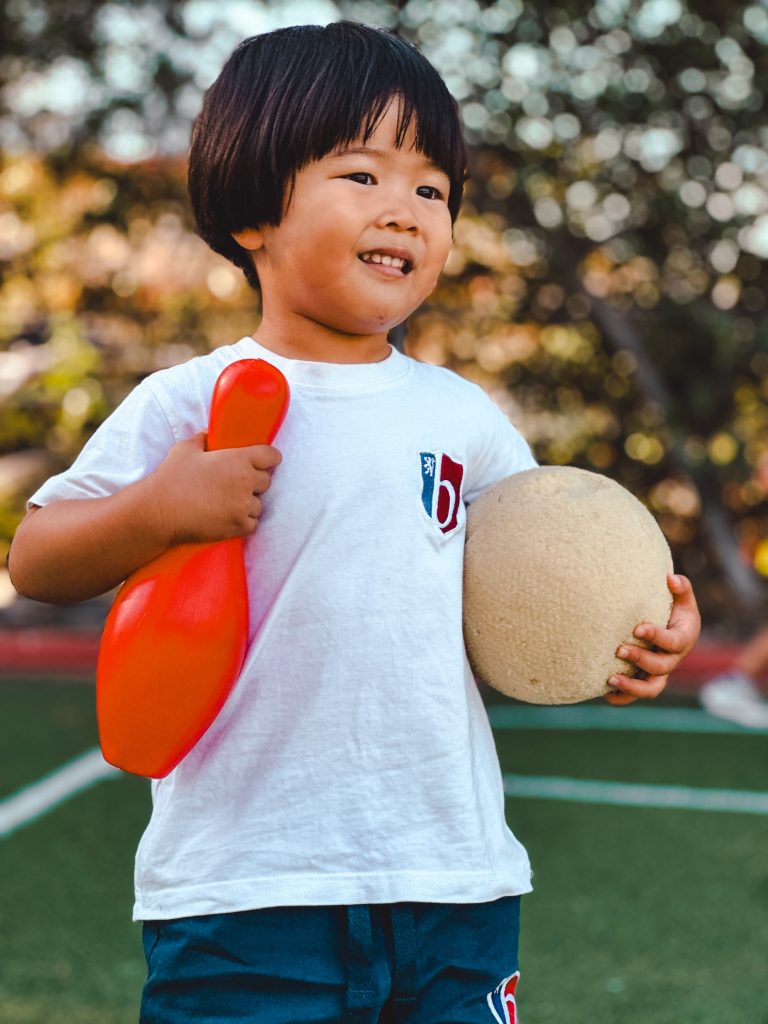
Seven areas of Early Years learning
Within the learning and development principle of EYFS, seven learning areas shape the educational programme at Byron College. These seven areas are split between prime and specific areas of learning.
The three prime areas are:
- Communication and Language Development gives children opportunities to speak and listen in a range of situations and to develop their confidence and skills in expressing themselves.
- Physical Development provides opportunities for young children to be active and to develop their coordination, control, and movement. Children are helped to understand the importance of physical activity and make healthy food choices.
- Personal, Social and Emotional Development provides a platform for children to develop a positive sense of themselves and others. Children are encouraged to form positive relationships and develop respect for others; to develop social skills and learn how to manage their feelings; to understand appropriate behaviour in groups, and to have confidence in their abilities.
The four specific areas are:
- Literacy Development encourages children to read and write, both through listening to others reading and beginning to read and write themselves. Children are given access to a wide range of reading materials – books, poems, and other written materials, to ignite their interest.
- Mathematics provides children with opportunities to practise and improve their skills in counting, simple addition and subtraction. They also learn to describe shapes, spaces, and measures.
- Understanding the World guides children to make sense of their physical world and community through opportunities to explore, observe and find out about people, places, technology, and the environment.
- Expressive Arts and Design supports children to explore and play with a wide range of media and materials and provides opportunities and encouragement to share their thoughts, ideas, and feelings through art, music, movement, dance, role-play, design, and technology activities.
Child-Led-Learning and ‘In The Moment Planning’ (ITMP)
ITMP allows practitioners observe and interact with children during their play and learning activities, paying close attention to their interests, needs, and development. Rather than pre-planning specific activities or themes, practitioners use their observations to guide their interactions and provide appropriate resources and support in real-time.
The ITMP approach emphasises being responsive to children’s immediate engagement and curiosity, allowing for personalised and child-led learning experiences. It aims to capture and extend children’s interests, promoting their motivation, creativity, and critical thinking skills.
By adopting ITMP, practitioners encourage and scaffold children’s learning experiences, supporting their development across all areas outlined in the EYFS framework, including personal, social, and emotional development, communication and language, physical development, and early literacy and numeracy skills.
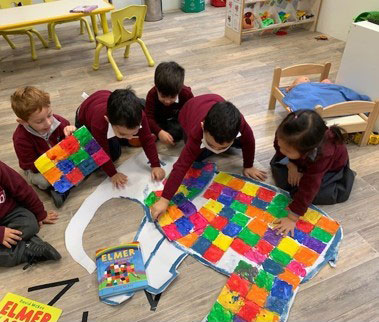
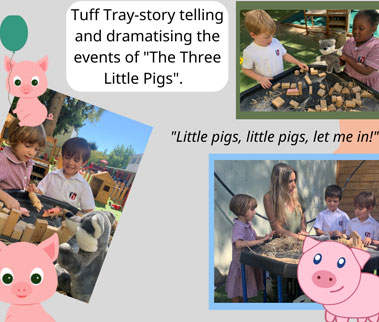
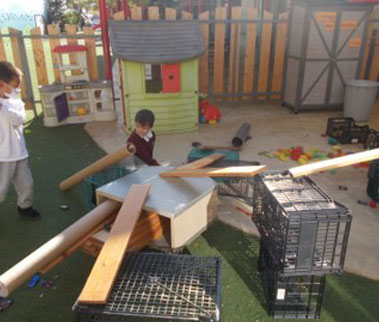
Art Exhibition
Byron College entrance was filled with vibrant colours and imaginative works of art created by our early years students featuring a diverse range of art forms and styles inspired by EYFS learning throughout the academic year 2022-23.
Apart from honing their artistic skills, the exhibition along with our sports day, demonstrated our commitment to community and partnership with parents.
Some of the topics that were exhibited were:
- Dental Hygiene and Teeth where children made their own book that showed all their learning about teeth.
- Paintings of animals that are omnivores, herbivores and carnivores.
- Gums and teeth from clay.
- Paintings of tigers alongside with children’s writing about tiger facts.
- Animals that can camouflage like Octopuses, Chameleons, Snakes and Red Eyed Frogs!
- Art based on fiction and non fiction books like Elmer, The Gruffalo, The Very Hungry Caterpillar, Dinosaurs etc.
Our Spring topic artwork where children explored, used and refined a variety of artistic effects to express their ideas such as: representational art, flowers from clay and plasticine , beautiful symmetrical butterflies and flower painting using sponges etc.
- Our own book Peeboo!
- Honey jugs were upcycled to became pencil holders and many more creations.
It is well known that art is vital for education, but everyone who attended the exhibition saw pride on the children’s face when they were talking about their learning through art. A tool to build self-confidence and a sense of identity and that is our goal in our EYFS department.
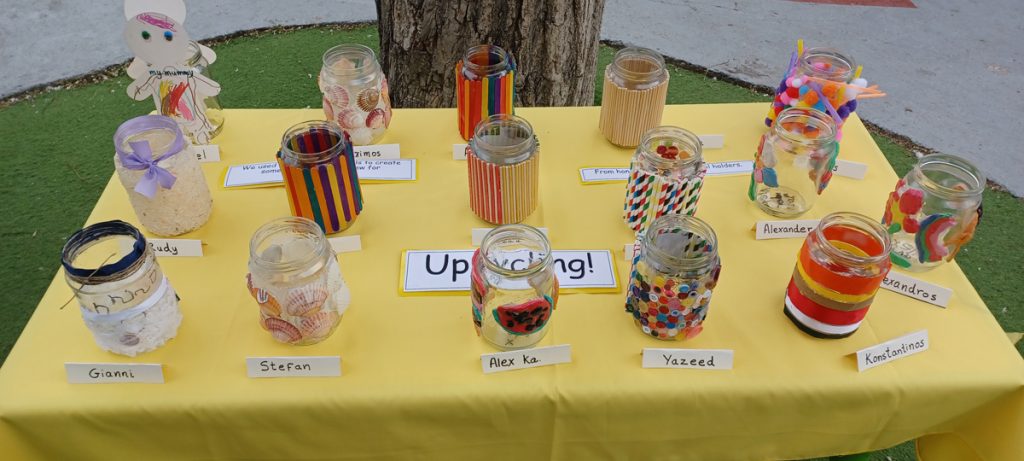
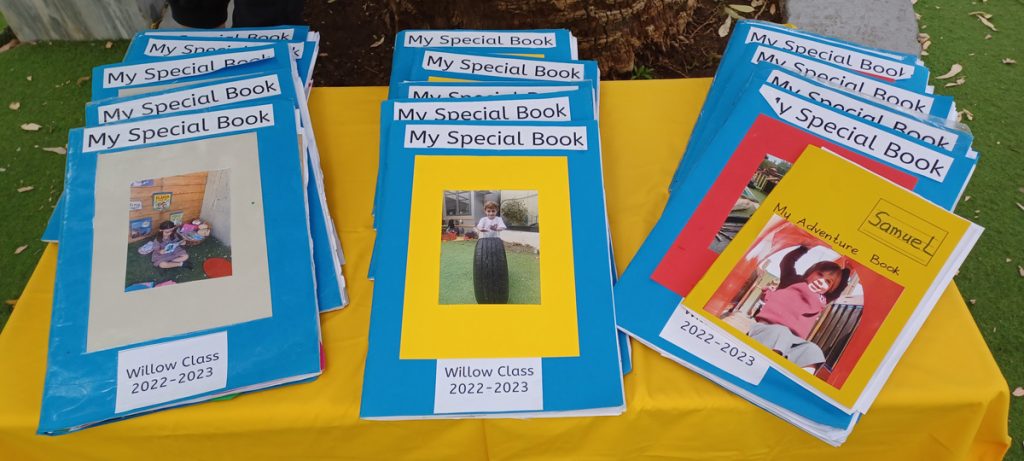
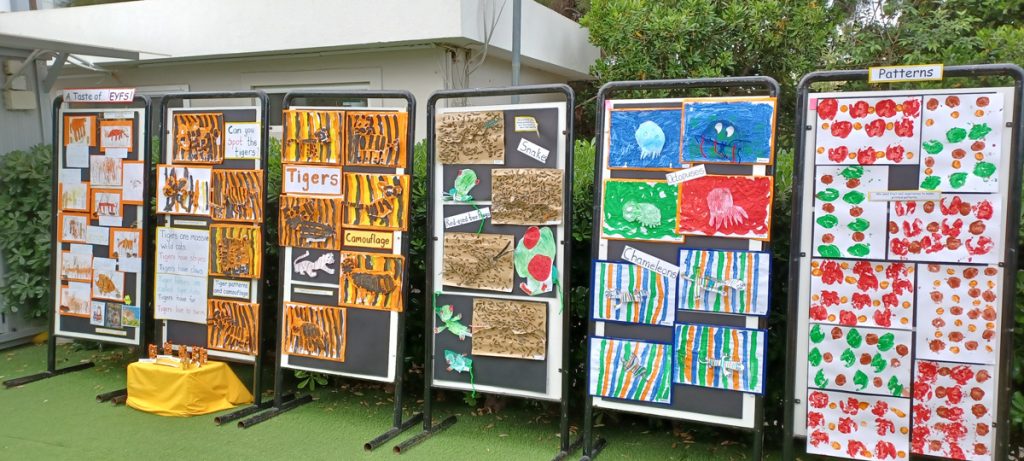
Health and Safety
The health and safety of your child is a priority and, with over three decades of experience in childcare, we balance keeping your child safe while allowing them the freedom and independence they need to develop and grow. If an accident or illness occur while at school, a fully qualified nurse is on site to administer the appropriate medical care and to contact the parents or guardians.
Image Gallery
